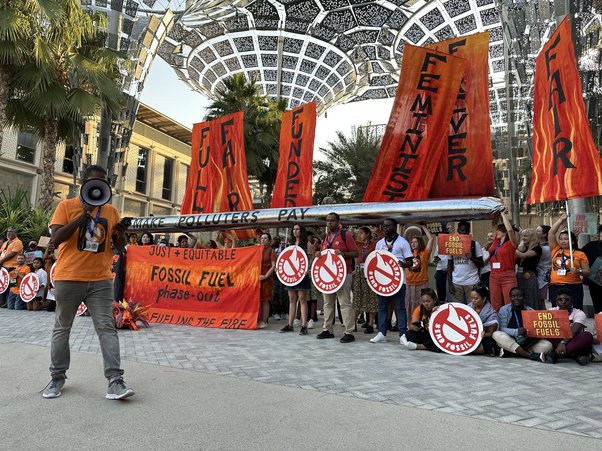Companies are increasingly turning to the voluntary carbon market – a system for creating and trading carbon credits (units intended to represent reduced or avoided greenhouse gases) – in the name of emissions reductions. Not only is this ineffective, but the market is riddled with issues that allow companies to overstate their climate actions.
Companies regularly use this marketplace to package their products as climate neutral after purchasing credits of unreliable quality, misleading the public and undermining urgent efforts to contain climate breakdown. Lacking robust quality controls, oversight, or transparency, the voluntary carbon market (VCM, or carbon offset market) is more of a distraction than a mechanism to meaningfully address the threat of climate change.
The market’s rapid growth – more than doubling in size in 2021, with the volume of trades exceeding $1bn – is cause for concern. As more companies use the market to suggest progress on their net zero pledges, a stand-in for actual emissions reductions, the swelling demand for credits threatens Indigenous peoples living on land targeted for offset projects.
Misrepresenting action
The VCM gives cover for companies to continue polluting as usual. Rather than aiding the vital reduction of greenhouse gas emissions, it creates a system in which companies delay meaningful action on the false basis of having ‘cancelled out’ their emissions with the credits they purchase. Credits have the appearance of being a relatively cheap quick fix.
Similarly, companies use these purchases to label themselves as environmentally friendly without solid basis or certification. These vague and loosely applied labels include ‘carbon neutral’, ‘science-based’, and ‘Paris-aligned’, which are often impossible to verify. The disingenuous use of VCM offsets to fabricate green credentials and mislead the public undermines legitimate climate action.
Companies also use the VCM to present an image of climate responsibility that contradicts their business activity. European transportation companies and industry groups have publicised their support for net zero emissions by 2050, while simultaneously lobbying against the necessary reductions and climate protections in the nearer term.
Lacking integrity and transparency
There are numerous problems with the credits traded on the VCM. For a start, how they’re calculated – one carbon credit is meant to represent a tonne of CO2 emissions absorbed. But this calculation is based on the wrongful assumption that fossil and biological carbon are equivalent and interchangeable, when the two have very different life cycles. Trees and other nature-based offsets are part of the fast, biological carbon cycle, which is not permanent (the carbon stored is released when trees burn or degrade), whereas fossil fuels are in the slow carbon cycle which take millions of years to enter the earth’s interior.
The VCM is dominated by credits generated by forestry and renewable energy projects, and by purchasers in the energy, consumer goods, and finance and insurance sectors. Forestry (or REDD+) projects have unreliable efficacy at scale and over time, given limited land availability, short-term timeframes, and threats from fires and flooding. Renewable energy projects are often non-additional, meaning they don’t reduce the overall amount of carbon that would have been generated had the project not occurred.
For example, an investigation reported that carbon credits generated by forest protection projects used by British Airways and other major airlines appear to be based on “a flawed and much-criticised system” that may have overstated their impact.
Yet the mass of different actors, methodologies, verifiers, and weak standards allows for a slew of poor-quality projects to reach the market. Even the agencies seeking to uphold higher standards have issues with quality and accounting.
Once sold, credits become more slippery still. There is no information on who owns hundreds of millions of active credits on the market. Registries are used to record credits that have been used as offsets (‘retired’), but frequently do not contain information on the owner or beneficiary, nor the details of the specific projects, making quality assessment challenging. Companies enjoy further opacity in how they paid for credits and where that money goes, or the types of credit they are using, making it easy for them to make unverifiable claims.

Voluntary behaviour varies widely, but the scientific consensus is clear
The voluntary market is voluntary for a reason – companies want to participate on their terms to present the outcome they desire. Without formal obligations or oversight, companies can operate as they choose, and their actions can vary tremendously in unconstrained pursuit of profit. But the scientific consensus allows no room for variable action.
Government action is needed to hold companies to account for their harmful climate impacts, not a lawless market solution that allows them to keep passing the buck.
Recent growth in the VCM and forecasts for its expansion over this decade has serious implications for land rights and the natural world. Its advocates (of whom there are many, including in the finance and fossil fuel sectors) are exploiting carbon sinks in the Global South. These projects are likely to encroach further on Indigenous and local community land, already weakly protected under existing legal mechanisms, when Indigenous peoples are shown to be the best stewards of forests as long as their land rights are protected.
Conclusion
Companies need to be able to tell consumers and shareholders they are not contributing to climate breakdown. This market approach to tackling a global environmental issue – essentially through the commodification of nature – is not a viable response to the climate crisis.
Reducing emissions, as the latest IPCC report lays out in incontrovertible detail, is non-negotiable. The VCM enables the freewheeling labelling of fossil fuels and other carbon intensive products as carbon neutral, which is patently untrue. Companies must shift their focus from the VCM to drastically reducing their emissions now, and governments must stop allowing companies to dodge their decarbonisation obligations if we are to preserve a liveable planet.


